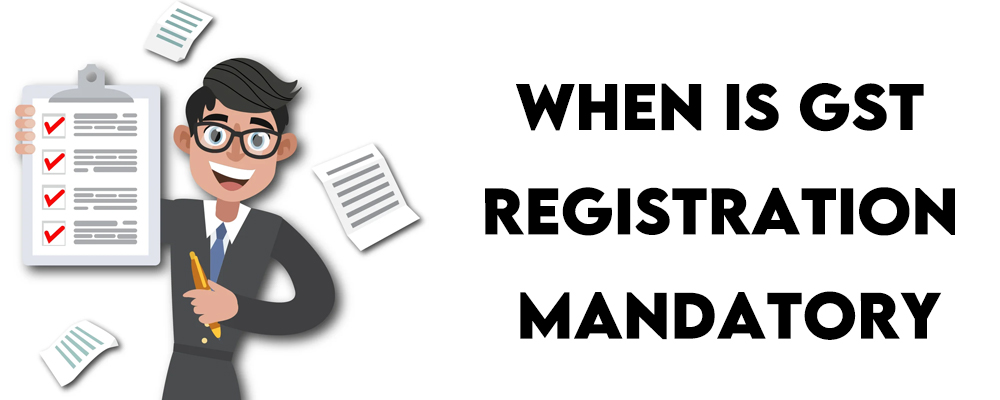There are several advantages to registering for GST,
Including the following:
- The cascading effect, which formerly resulted in double taxes on goods, has been eradicated in India since the implementation of the GST. The business entity’s tax liability has decreased since the cascading impact was eliminated.
- In India, there were numerous indirect taxes in place before the implementation of the GST, including the service tax, VAT, excise tax, and others. Therefore, the number of filings has dropped since the GST was implemented because all indirect taxes were consolidated into a single tax system.
- A person can save time by registering themselves online and filing their GST using the GST portal.
- A person is legally recognised as a supplier of goods and services after registering for GST.
- After registering, an individual can claim the Input Tax Credit for taxes paid and use it to pay taxes owed on the provision of goods and services, ensuring the transparency of the tax collection process.
Need A Legal Advice
The internet is not a lawyer and neither are you. Talk to a real lawyer about your legal issue

Mandate for Registration: (Sec 22)
- The person responsible for registration is discussed in Section 22 of the CGST Act.
- A person must register if the value of their taxable supplies of goods and services within a fiscal year exceeds forty lakh rupees. However, for some special category states (Jammu & Kashmir, Ladakh, Assam, Puducherry, Meghalaya, Mizoram, Tripura, Manipur, Sikkim, Nagaland, Arunachal Pradesh, and Uttrakhand), the threshold limit of taxable supply of goods and services in a financial year is twenty Lakh, which means that such special category states shall be required to register if their combined turnover in a financial year exceeds ten lakh rupees.
- Everybody who is registered or holds a license under the law as of the day before the scheduled day is required to register under this Act beginning on the appointed day.
- In the event that the registered person transfers their business, the transferee is required to register as of the date of the transfer or succession.
- The transferee of the business must be registered in the event of a transfer authorized by a scheme, an amalgamation, or the demerger of two businesses pursuant to a High Court or Tribunal order.
Who Is Not Liable for Registration? (Sec 23)
The following person is not required to register, according to Section 23 of the CGST.
- Anyone conducting business in goods and services is not required to register if they are not required to pay tax or are completely exempt from tax under this Act or the Integrated Goods and Services Tax Act.
- According to the Income Tax Act of 1961, agricultural income is exempt. Therefore, an agriculturist who works to supply or grow crops is not needed to register.
- The Government may from time to time make the notification about the person who is not liable or may be exempt from obtaining registration under this Act on the recommendation of the GST Council.
Compulsory Registration: (Sec 24)
Section 24 of CGST discusses required registration. The following groups of people must register in accordance with this act, despite anything that contains CGST clause 22(1).
- Inter-state supply is the word used to describe the flow of commodities and services from one state to another. Therefore, if a person is making an interstate supply, they are required to register.
- The casual taxable person is defined under Section 2(21) of the GST. A person is referred to as a casual taxable person when they start their business on occasion in another state or union territory when they do not have an established place of business.
- According to Section 9(5) of the CGST, the government may specify categories of services for which the tax on intrastate supplies shall be paid by the electronic commerce operator if such services are supplied through it, and all provisions of this Act shall apply to such an electronic commerce operator as if he is supplier liable for paying the tax regarding the supply of such services. This authority is granted by the council.
- Any non-resident who periodically provides products and services in India, but does not have a permanent place of business or habitation there is referred to as a non-resident taxable person.
- A person, whether or not separately registered under this act, who is obligated to deduct tax under Section 51 of the CGST.
- A person must register for tax purposes if they perform a taxable supply of goods, services, or both on behalf of other tax paying individuals, whether they are acting as an agent or not.
- A company is referred to as an input service distributor when it receives the bills for the services used by its branches (ISD). Then, the Head Office distributes the tax to all of the branches by sending out ISD Invoices.
- The payment for the supply of goods and services made by the supplier through its portal is obtained by the electronic commerce operator. Every operator of an electronic commerce site required to collect tax at source under Section 52 of the CGST must compulsorily register.
- A person must register for free if they are providing online information and database access or retrieval services outside of India and are not already registered.
- The Government may occasionally notify the person subject to mandatory registration on the advice of the GST Council.





 Talk to a Lawyer
Talk to a Lawyer